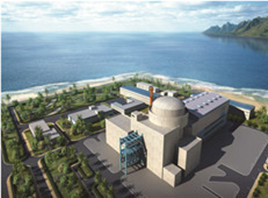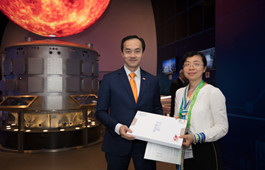Beautiful Hebei
Hebei province is abbreviated as "Ji", which means "hope". The total area of Hebei is 188,000 square kilometers. The total population is over 74 million, situated in 11 cities with districts and two counties directly under provincial leadership. The provincial capital is Shijiazhuang. Hebei encircles Beijing and Tianjin. In 1272 the Yuan Dynasty chose Dadu (the present Beijing) of Hebei as its capital, and, as the key area around the national capital, Hebei inevitably became the link between the capital and the whole country. Hebei, the core hinter land of the Bohai-Rim Circle, has a long coastline of 487 kilometers, and has unique regional advantages which give it a very rare historic opportunity. The synergetic development of the Beijing-Tianjin-Hebei Region has become a key national strategy. The Bohai-Rim Circle is becoming the most vigorous economic boom in Northeast Asia and the third economic growth pole after the Pearl River Delta and the Yangtze River Delta. Beijing and Zhangjiakou will host the 2022 Olympic Winter Games. Hebei is becoming of increasing interest to people at home and abroad, and a place favored by investors.
Hebei has many resources. The quantities of nearly forty minerals found there rank among the top five quantities of those minerals found in different areas of China. Oil and gas reserves are spread throughout the Jizhong, Dagang and Jidong oilfields, along and beneath the Bohai Sea. Zhangjiakou and Chengde are second-class national solar energy bases. The Bashang area has a wind energy reserve of 17 million kw, and has become the first national base with two million kw wind power. The more than 1100 square kilometers of coastal area is an important backup land resource.
Hebei has a big agricultural base. In 2015, the output of grain totaled 33.64 million kilograms. It vigorously develops the modernization and industrialization of agriculture, further enlarging the industry scale of the three industries of animal husbandry, vegetable and fruit production which together account for 70 of Hebei's agricultural value. Hebei possesses 23 regional characteristic fruits, including Jinzhou Ya-pear and Zanhuang Chinese-dates. Hebei has also bred and formed some national-level leading enterprises of industrialized agriculture such as "Lulu" of Chengde and "The Great Wall" wine of Zhangjiakou.
Hebei is also an industrial province. Three of its enterprises, Hebei Steel and Iron Group, Jizhong Energy Group and Kailuan Group are among the Top Global 500 companies, and 24 enterprises have ascended to the Top 500 of China. The steel and iron capacity of Hebei constitutes over one-fifth of the national total and its output has ranked first for 15 consecutive years. Hebei is committed to strategic adjustment in the industrial structure of steel and iron, actively defusing excessive capacity, and has completely weeded out its backward steel and iron production facilities. Hebei is transforming from a big steel province to a strong one. In 2015, Hebei Steel Group's competitive power was the second strongest in China.
Hebei is one of the top provinces in foreign trade. It has established economic and trade relations with more than 200 countries and regions worldwide. It has formed dozens of export products with independent self-owned brands such as "Great Wall Motor", "Yingli photovoltaic products", "Daika hub", "North China Pharmacy" and "Huida ceramic". In 2015, the total import and export value of the whole province reached 319.24 billion yuan. Hebei implements the strategy of "going global", driving competitive industries such as steel, cement and glass to develop abroad. Delong Holding Company has invested 24 billion Thai baht in Thailand in a project that can produce 600,000 tons of mill coils. Jing'an Solar Energy's 400MW-solar-energy battery plant at Penang in Malaysia has been completed and is now operational.
Hebei province and all its cities have established sister-state and sister-city relationships with 60 states (provinces) and cities in 22 countries. These sister cities have become the bridge over which Hebei can develop affiliations with the world.

 Province Events
Province Events Major Events
Major Events Highlights
Highlights
